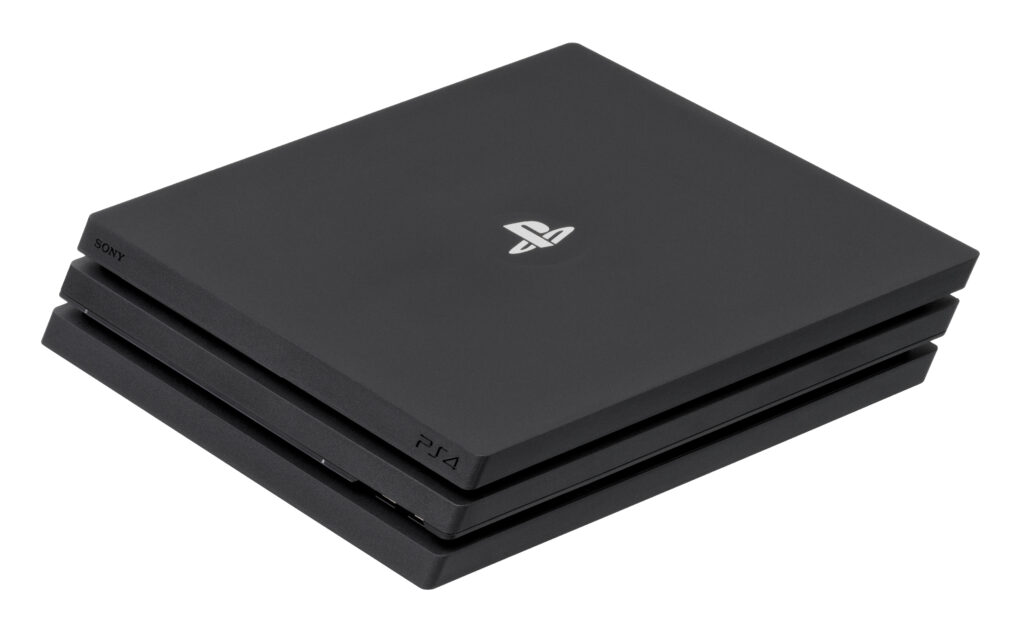
The PlayStation 4 (PS4), released in 2013, was a highly successful eighth-generation home console and a major commercial rebound for Sony after the challenging PlayStation 3 generation. In a marked shift from its predecessor, the PS4 utilized a more conventional, developer-friendly PC-like architecture, allowing for a vast and diverse library of games that solidified its market dominance.
Key features and innovations
- x86-64 architecture: The PS4’s hardware was based on a semi-custom AMD Accelerated Processing Unit (APU), combining a powerful x86-64 CPU and a Radeon GPU on a single chip. This familiar architecture was a deliberate move to make it easier and more efficient for game developers to work with, in contrast to the PS3’s more exotic and complex Cell processor.
- Social features: Sony heavily emphasized social interaction with the PS4.
- “Share” button: The DualShock 4 controller introduced a “Share” button, allowing players to instantly broadcast gameplay, share video clips, or take screenshots to social media platforms.
- Share Play: This feature allowed users to invite an online friend to join their game session via streaming, even if the friend did not own the game.
- Remote Play: Players could stream and play games from their PS4 to compatible devices like the PlayStation Vita, PC, or Mac.
- DualShock 4 controller: The PS4’s controller was a significant upgrade, featuring improved analog sticks and triggers, a light bar for motion tracking and in-game feedback, and a built-in touchpad that enabled new gameplay mechanics.
Hardware models
Sony released several hardware revisions to offer consumers different tiers of performance.
- Original “Fat” model: The console released in 2013 was a larger, more angular model that laid the foundation for the PS4’s success.
- “Slim” model: Released in 2016, this revision was 30% smaller, more energy-efficient, and featured a slightly updated DualShock 4 controller. It became the standard base model of the console.
- “Pro” model: Also released in 2016, the PS4 Pro was a high-end version with upgraded hardware for enhanced performance. It was designed to support 4K gaming and HDR visuals for compatible games on 4K TVs.
Notable exclusive games
The PS4 was celebrated for its extensive library of critically acclaimed and commercially successful exclusive titles, many of which are considered some of the best games of the era.
- The Last of Us Remastered and The Last of Us Part II: A hallmark narrative-driven action-adventure series.
- God of War (2018): A soft reboot of the franchise that became a critical and commercial smash hit.
- Horizon Zero Dawn: An open-world action RPG set in a post-apocalyptic world.
- Marvel’s Spider-Man: A widely celebrated open-world superhero adventure.
- Uncharted 4: A Thief’s End: The acclaimed final chapter in the Nathan Drake saga.
Impact and legacy
The PS4 dominated the eighth generation of consoles, ultimately selling over 117 million units. Its success was driven by a powerful and accessible hardware platform, a rich lineup of exclusive games, and a focus on social, connected experiences that resonated with the gaming community. The PS4’s legacy is defined by its ability to deliver an immersive, high-quality gaming experience that set the stage for its successor, the PlayStation 5.
